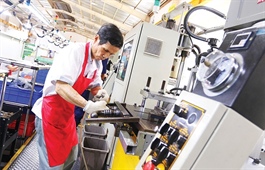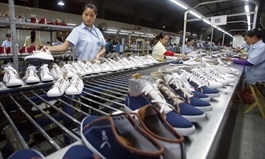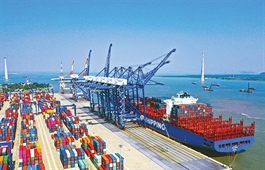Singaporeans setting sights on Vietnam
Singaporeans setting sights on Vietnam
The Singaporean business community has been finding ways out to keep operations running in Vietnam amid the new normal and is pinning high hopes on 2021. Jeffrey Wandly, vice president of the Singapore Business Association Vietnam, looks at 2020’s performance and the outlook for the next year.

Jeffrey Wandly, vice president of the Singapore Business Association Vietnam
|
The pandemic impacted companies globally, with those from Singapore being no exception. However, some businesses were not affected that much, with a few even benefitting from the health crisis and its implications. For instance, the hygiene and pest control sector has increased business as these companies have also been offering to disinfect buildings and facilities.
The Vietnamese government has been issuing several policies to support businesses in these difficult times. However, some Singaporean companies did not apply for these benefits as they felt that the administrative procedures were too time-consuming.
A member of the Singapore Business Association Vietnam mentioned that they did not receive any support in terms of rental reduction from the landlord, and that there would not be many benefits in these policies since rents and taxes remain unchanged.
Meanwhile, the government’s framework to restructure loans has benefited some eligible businesses. However, the length of the pandemic has limited the impact of such support schemes, and it was commented by some businesses from the retail and service sector that social insurance and tax incentives would be more appreciated during this period.
According to Enterprise Singapore, despite the health crisis, Vietnam is attracting a record high number of Singaporean businesses seeking opportunities to expand abroad. These businesses focus on telecommunications and modern ways to work from home and can leverage the digital economy, aiming to conquer markets well beyond the Vietnamese one.
Such companies continually increase their efficiency with certifications and computerised processes, for which they evaluate software that could further increase their output and improve client and human resource management.
It is a long road for the digitalisation to cover both infrastructure and legislative frameworks, which will take more than a year for the effects to be felt by businesses from various areas.
Computerising and digitalising companies are the most efficient ways to move forward in the next decades, with procedures like invoicing and verifying signatures becoming far more convenient and secure if done digitally.
Fortunately, some administrative procedures have been already carried out by functional government agencies in Vietnam to enable the development of these solutions.
With these efforts, Singaporean companies are optimistic when it comes to the long-term growth potential in Vietnam, which is also backed by the rise of the middle class and urbanisation.
The pandemic and digitalisation have accelerated the transformation of business models and consumer behaviours. Agility to switch one’s business model following these two developments is vital, and businesses that have managed to do well during the pandemic will most likely be able to do even better as we emerge from it.
However, if the pandemic continues to go on for a longer time, customers and clients may face some financial challenges, which will also affect businesses as they live off consumer cashflow.
The effect of COVID-19 on Vietnam’s economy is not as severe as in other countries. Even though business activities have also slowed down here during 2020, the domestic economy should be in an upward trend going forward, albeit at a slower pace than before. From a macroeconomical perspective, Vietnam still has many growth opportunities. One of which is the continuous migration of factories from China to other regional countries like Vietnam, which has started well before the pandemic but has now been accelerated through it.
Amid this movement, Vietnam has all the best chances to become the new factory of the East and fix the gaps in global supply chains that the pandemic has opened.
At the same time, the many new-generation free trade agreements between Vietnam, the European Union, Australia, ASEAN, and many more, that have or will soon come into effect are also driving Vietnam’s growth potential. With all the above, we feel optimistic that Vietnam is well positioned going into 2021.



























